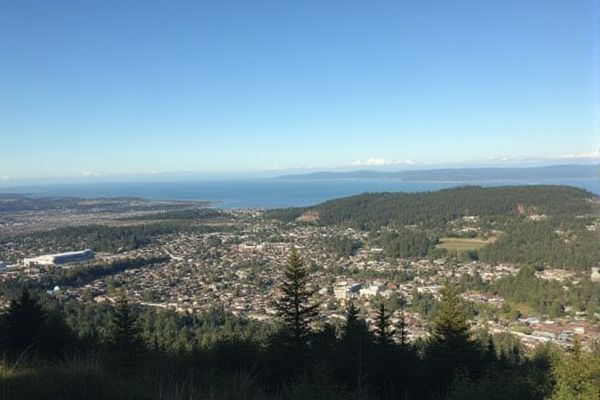
Local laws and regulations in Oregon: Marijuana legalization and regulations. State income tax laws. Automated enforcement in school zones. Tenant-landlord rental agreements. Sustainable forest management laws. Public beach access rights. Bicycle safety and helmet laws. Liquor control and permit requirements. Mandatory recycling laws. Land use and zoning regulations.
Marijuana legalization and regulations
In Oregon, Marijuana is legal for both recreational and medical use, with adults 21 and older allowed to possess up to 1 ounce of cannabis flower in public. Recreational users have specific possession limits, while medical marijuana patients have higher limits and can grow up to six mature plants. Consumption in public places is prohibited, and there are strict regulations on sales, transportation, and cultivation. For more detailed information, you can refer to the Oregon Marijuana Laws Guide available online, which provides a comprehensive overview of the legal landscape surrounding cannabis in the state.
State income tax laws
Oregon's state income tax law is closely aligned with the federal Internal Revenue Code, with modifications to suit the state's jurisdiction and revenue needs. The tax system is progressive, with rates ranging from 4.75% to 9.90%, applied in a tiered structure based on taxable income levels. For more specific details on structuring and adjustments within Oregon's taxation, the Oregon Legislature provides comprehensive information and updates regarding any modifications.
Automated enforcement in school zones
In Oregon, Automated Speed Enforcement (ASE) in school zones has been demonstrated to reduce traffic speeds, with mean and 85th percentile speeds decreasing by approximately 5 mph when ASE is present. The program, supported by public information campaigns and the use of flashing beacons, has shown lasting effects even after ASE operations cease.
Tenant-landlord rental agreements
In Oregon, tenant-landlord rental agreements must include key components such as tenant and landlord responsibilities, security deposit terms, and clear descriptions of the rental unit. Landlords are required to provide a habitable environment, respect tenant privacy with 24-hour notice before entry, and return security deposits within 31 days after the lease ends, minus reasonable deductions. For more detailed information on these regulations, you can visit the Steadily Blog, which offers comprehensive insights into Oregon's rental lease agreement laws and regulations.
Sustainable forest management laws
Oregon's Sustainable Forest Management Laws, governed by the Oregon Forest Practices Act (OFPA), include requirements for reforestation, protections for water and fish habitats, limits on clearcutting, restrictions on chemical use, and regulations for forest roads and wildlife habitat. The laws also mandate notifications for various forest operations and enforce best management practices to ensure environmental stewardship and sustainable forest management. To delve deeper into these practices and the overall impact of these laws, visit the Oregon Forest Laws website for more comprehensive information.
Public beach access rights
The Oregon Beach Bill of 1967 and Statewide Planning Goal 17 protect public access rights to the coast, establishing a permanent public easement for access and recreation along the ocean shore seaward of the existing line of vegetation, and requiring local governments to maintain and improve public access to coastal shorelines and waters. For more information, visit the Oregon Beach Bill page.
Bicycle safety and helmet laws
In Oregon, bicycle safety laws mandate that riders adhere to vehicle laws, yield to pedestrians, and ride in the direction of traffic while obeying traffic signals. Notably, riders under 16 are required to wear helmets that comply with national safety standards when navigating public roads or premises. Failure to meet this helmet requirement can result in a fine. For comprehensive insights into these regulations and more, please visit the official Portland Transportation Website.
Liquor control and permit requirements
The Oregon Liquor Control Commission (OLCC) is responsible for overseeing the sale of alcoholic beverages in Oregon, employing a "control" system where the state holds exclusive rights to sell distilled spirits and fortified wine through contracted retail liquor stores. The OLCC mandates liquor licenses for businesses, requires alcohol service permits for servers and managers, and enforces regulations aimed at preventing underage drinking and promoting responsible alcohol consumption. To learn more about how [Oregon Liquor Control Commission](https://www.oregonlegislature.gov/lpro/Publications/Background-Brief-Alcohol-Regulation.pdf) manages these regulations, you can explore comprehensive guidelines provided by the Oregon Legislature.
Mandatory recycling laws
Under Oregon law, cities with at least 4,000 people must provide recycling services, and local governments are required to implement recycling programs with mandatory material recovery rates and specific program elements as outlined in the Opportunity to Recycle Act and subsequent amendments. The state also sets both voluntary and mandatory recovery goals for different jurisdictions and materials. To learn more about these requirements and how they impact your community, visit Oregon's Recycling Laws through the Opportunity to Recycle Act.
Land use and zoning regulations
In Oregon, land use regulations are primarily governed by zoning and subdivision regulations, which are part of comprehensive community development plans. Zoning labels land into categories such as residential, commercial, or exclusive farm use, with subcategories and provisions for variances and special uses. Meanwhile, Subdivision Regulations control the division of land into smaller units, including requirements for roads, utilities, and public areas.
